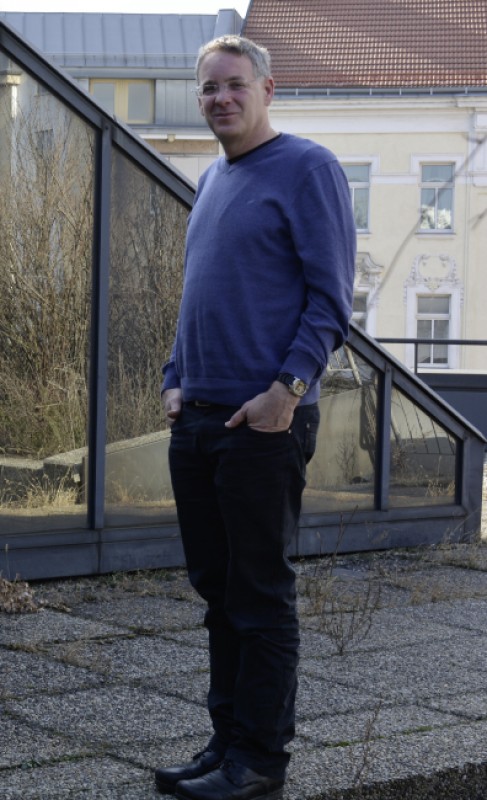KLI Colloquia are invited research talks of about an hour followed by 30 min discussion. The talks are held in English, open to the public, and offered in hybrid format.
Fall-Winter 2025-2026 KLI Colloquium Series
Join Zoom Meeting
https://us02web.zoom.us/j/5881861923?omn=85945744831
Meeting ID: 588 186 1923
25 Sept 2025 (Thurs) 3-4:30 PM CET
A Dynamic Canvas Model of Butterfly and Moth Color Patterns
Richard Gawne (Nevada State Museum)
14 Oct 2025 (Tues) 3-4:30 PM CET
Vienna, the Laboratory of Modernity
Richard Cockett (The Economist)
23 Oct 2025 (Thurs) 3-4:30 PM CET
How Darwinian is Darwinian Enough? The Case of Evolution and the Origins of Life
Ludo Schoenmakers (KLI)
6 Nov (Thurs) 3-4:30 PM CET
Common Knowledge Considered as Cause and Effect of Behavioral Modernity
Ronald Planer (University of Wollongong)
20 Nov (Thurs) 3-4:30 PM CET
Rates of Evolution, Time Scaling, and the Decoupling of Micro- and Macroevolution
Thomas Hansen (University of Oslo)
RESCHEDULED: 18 Dec (Thurs) 3-4:30 PM CET
Chance, Necessity, and the Evolution of Evolvability
Cristina Villegas (KLI)
8 Jan 2026 (Thurs) 3-4:30 PM CET
Embodied Rationality: Normative and Evolutionary Foundations
Enrico Petracca (KLI)
15 Jan 2026 (Thurs) 3-4:30 PM CET
On Experimental Models of Developmental Plasticity and Evolutionary Novelty
Patricia Beldade (Lisbon University)
29 Jan 2026 (Thurs) 3-4:30 PM CET
Jan Baedke (Ruhr University Bochum)
Event Details

Topic description / abstract:
In the past 10 years ancient DNA research has transformed our knowledge about the genetic history of past populations worldwide. A major challenge in the field is how to obtain authentic ancient DNA genomic data for human skeletons from non-temperate world regions, due to the poor ancient DNA preservation in these climates. A major contribution of Pinhasi and his team is the development of innovative methods that optimise ancient DNA yields from the inner ear bone, ear ossicles, and teeth. The combination of these methods with existing extraction and library preparation methods made it possible to obtain genomic data for 100s of individuals from prehistoric populations from non-temperate world regions, placing a particular focus on the study of agricultural dispersals across Africa, Europe, various regions of Asia and the Pacific, and to examine central questions about agricultural transitions and dispersals: Who were the first farmers? When and where did agricultural dispersals take place? What was the nature of contributions and interactions of indigenous hunter-gatherers to these agricultural transitions?
Biographical note:
Ron Pinhasi is an Associate Professor, at the Department of Evolutionary Anthropology, University of Vienna.
He received his BA in Archaeology from Simon Fraser University, Vancouver Canada (1996), His MA from Katholike University Leuven, Belgium (1997) and his PhD from the University of Cambridge, UK in 2003. He spent two years (2003-2004) in a Lise Meitner postdoctoral position at the Natural History museum, Vienna, examining the health status of early medieval Austrian populations.
He started his first lecturer position at Roehampton University, London, 2004-2007 and continued to a second lectureship position at the department of Archaeology, University College Cork, Ireland (2007-2012). During 2012-2017 he was an Associate Professor at University College Dublin.
He Held a Starter ERC Starter grant (2011-2015) for an interdisciplinary project which focused on the integration of ancient DNA methods, isotope analysis, anthropology and archaeology to the study of the biology, mobility and behaviour of past human populations during the last 45,000 years. This research led to >40 publications, and the analysis of human ancient DNA of over 3000 Palaeolithic, Mesolithic and Neolithic human skeletons from across Eurasia, Africa and the Pacific.
Ron Pinhasi established the first human ancient DNA laboratory in Ireland, in 2013 and in November 2017, he started a new ancient DNA laboratory at the University of Vienna.


